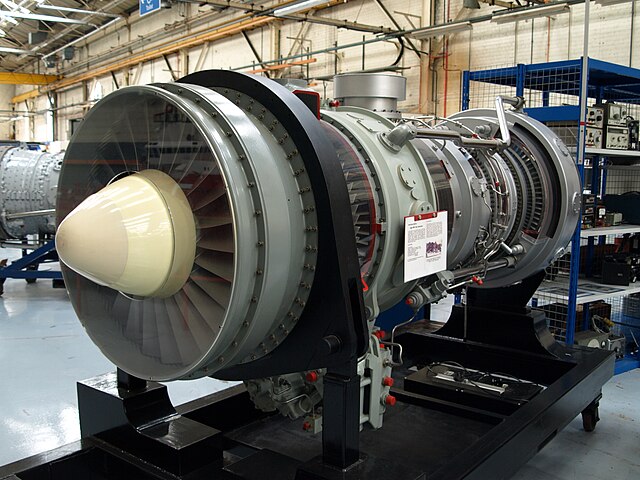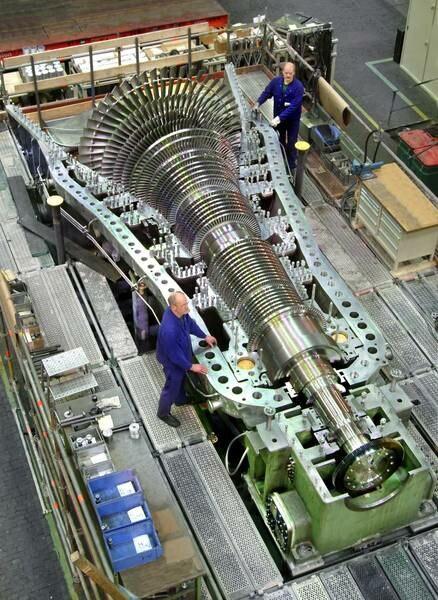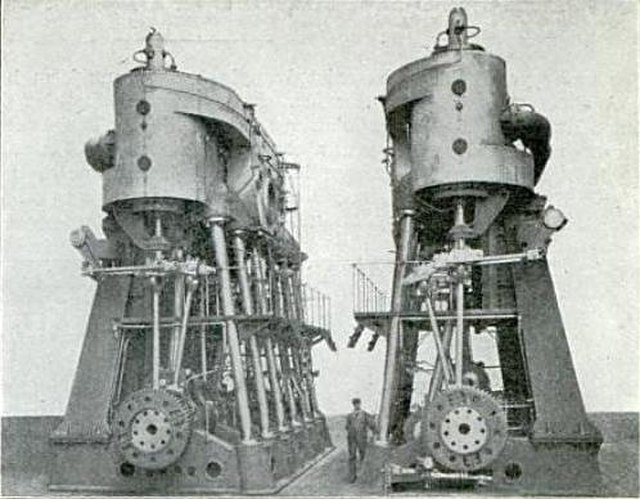Marine propulsion is the mechanism or system used to generate thrust to move a watercraft through water. While paddles and sails are still used on some smaller boats, most modern ships are propelled by mechanical systems consisting of an electric motor or internal combustion engine driving a propeller, or less frequently, in pump-jets, an impeller. Marine engineering is the discipline concerned with the engineering design process of marine propulsion systems.
Rolls-Royce Marine Spey, a gas turbine developed by Rolls-Royce Holdings in the 1960s for marine propulsion.
V12 marine diesel engines
A marine steam turbine manufactured by MAN Energy Solutions
Marine steam reciprocating engines, ca. 1905
A ship is a large vessel that travels the world's oceans and other navigable waterways, carrying cargo or passengers, or in support of specialized missions, such as defense, research and fishing. Ships are generally distinguished from boats, based on size, shape, load capacity and purpose. Ships have supported exploration, trade, warfare, migration, colonization, and science. Ship transport is responsible for the largest portion of world commerce.
Feeder ship Iris Bolten at Container Terminal Altenwerder, port of Hamburg, Germany
Fijian voyaging outrigger boat with a crab claw sail
One of the sailing vessels depicted in Borobudur temple, c. 8th century AD in Java, Indonesia
Egyptian sailing ship, c. 1422–1411 BC








